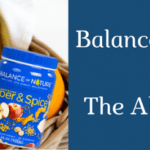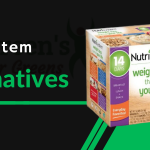What is an alkaline diet? Is it good for you? Have you ever felt overwhelmed by the influx of diets and eating trends whenever you read the news? It’s clear that there are approaches to eating there. What you might have noticed is that most of these diets aim to address the shortcomings of the Standard American Diet (S.A.D.), which heavily relies on processed foods. While choosing a processed diet is a step in the right direction, it doesn’t necessarily guarantee the perfect eating plan for everyone. Some diets can be difficult or restrictive, leading to failure. Nobody wants to follow a regimen that deprives them of enjoying their foods.

However, today we’ll explore the world of alkaline foods.
So where does an alkaline-based food plan fit into all this?
The interesting thing about this approach is that it’s not about eliminating foods; instead, it focuses on what benefits your body by finding a balance between alkaline and acidic foods.
There are no rules, like “eat this, avoid that,” when it comes to incorporating alkaline foods into your diet. The main aim is to prioritize your well-being by focusing on adding nourishing options to your diet rather than restricting yourself by eliminating foods.
By changing your mindset to embrace the variety of foods available that can improve your health, making healthier choices becomes easier to manage.
Now let’s explore the world of alkaline foods and discuss their benefits and practical ways to incorporate them into your routine.
What is an alkaline diet?
Understanding the concept of alkalinity requires delving into knowledge. Specifically, alkalinity refers to where a substance falls on the pH scale used in chemistry. The pH scale measures. Basicity (alkalinity) of substances ranging from 0 to 14. Acidic substances have numbers on the scale, while basic (alkaline) substances have numbers. A neutral substance, such as drinking water, has a pH value of 7.
Although we may not consciously consider it when consuming food, every substance falls somewhere on this scale. However, by paying attention to how things feel, taste, or smell in our bodies, we can make guesses about their acidity or alkalinity.
A useful guideline to remember is that tasting foods are usually acidic, while alkaline foods don’t have a taste, like sourness. Understanding that sourness often indicates acidity can be a starting point in determining the nature of a substance.
When it comes to maintaining the alkaline balance in our bodies, health enthusiasts and researchers have become interested in studying the acidity levels of foods. Some known acidic foods include meat, grains, alcohol, dairy products, lentils, peanuts, soda, and processed foods. Consuming a diet high in these foods can increase the risk of developing various chronic illnesses and health complications.
Conditions such as cancer, heart disease, osteoporosis, kidney disease, and obesity have been directly linked to consuming foods. Additionally, following a diet may raise the chances of experiencing acid reflux or gastroesophageal reflux disease (GERD).The discovery has led to a reinforced hypothesis: could the acidity of the food we consume really disturb our body’s pH balance, potentially causing harm to our well-being?
Advantages of Alkaline Foods
Source: @HealthNetLLC
After comprehending the negative consequences of consuming excessively acidic foods, let’s delve into how alkaline foods behave within our bodies.
The idea of an alkaline diet has sparked discussions about its impact on improving health. Initially, many health experts speculated that consuming alkaline foods would contribute to alkalizing or increasing blood alkalinity. This theory is known as the acid-ash theory.
However, research does not support the notion that diet can significantly alter blood alkalinity. Multiple studies have shown no shifts in blood pH caused by choices. In fact, straying far from the pH level of the blood (7.4) can lead to serious health complications.
Nevertheless, this does not dismiss the benefits of alkaline foods. Render them ineffective. Strong evidence suggests that incorporating alkaline-based foods into one’s meals still provides advantages, even if an alkaline diet may not directly impact blood pH levels. One primary reason for this is a reduction in protein intake.
By reducing the amount of protein in our diet, our body produces byproducts that need to be processed or stored. This means our kidneys are not overloaded with breaking down consumed proteins, which helps prevent kidney issues that can arise from foods.
Additionally, an alkaline diet typically includes a range of plant-based foods, leading to an increase in antioxidant consumption. Natural antioxidants are exclusively found in plant foods. A higher intake of antioxidants has been associated with a reduced risk of cancer and a better chance of avoiding illness. Antioxidants are designed to combat stressors that can contribute to both short- and long-term diseases.
In conclusion, while an alkaline diet may not directly affect the body’s pH as initially believed, it remains an approach for reducing the long-term risk of diseases.
Alkaline Foods
Now that we understand the benefits of alkaline foods, let’s explore some examples. The alkaline diet highlights the importance of consuming foods that have an impact on our health.
Including the following foods in an alkaline diet can be highly beneficial:
- Vegetables are leafy greens.
- Fruits, with berries being particularly advantageous.
- Potatoes of all kinds.
- Seeds.
- Tree nuts, except for walnuts.
- Legumes.
The primary goal of following an alkaline diet is to increase the consumption of these foods while reducing the intake of the foods mentioned earlier. It’s not eliminating anything from your diet but rather adjusting the amount of acidic foods you eat to make space for more alkaline options on your plate.
Striking a balance between alkaline and acidic foods is crucial. If you suspect that your diet leans more towards foods, there are signs to be aware of:
- Consistently low energy levels.
- Poor or unpredictable digestion.
- Difficulties with weight loss.
- issues like acid reflux or GERD.
- Reduced kidney function.
- Respiratory. Difficulties in breathing.
- Being at risk for or having diabetes.
- In some cases, excessive acidity in the blood leads to acidosis.
It’s important to note that many alkaline foods are less processed and plant-based. Numerous studies have indicated that diets rich in nutrient-packed plants and low in processed foods are linked to a higher risk of disease and improved overall immunity. Hence, regardless of the mechanisms through which alkaline foods contribute to our well-being, the main takeaway is that they undeniably offer advantages.
Is your body in an alkaline state?
While there is no evidence supporting the idea that consuming alkaline foods directly affects the body’s pH level, it’s worth noting that incorporating alkaline foods into your daily diet can still have noticeable positive impacts on your overall health.
Including alkaline foods in your meals can lead to benefits such as weight loss, sustained energy levels throughout the day, digestive issues, improved sleep quality, better digestion, and a reduced risk of conditions like obesity, certain cancers, diabetes, kidney failure, and heart problems.
People who prioritize an intake of alkaline foods often report experiencing these short-term advantages within a few days. It’s important to remember that this doesn’t mean eliminating foods; rather, it emphasizes the significance of finding the right balance between acidic and alkaline choices to avoid excessive acidity.
Health and longevity depend on a balanced diet.
Maintaining an equilibrium between alkaline intake and alkaline intake plays a key role when following an alkaline diet. Excessive levels of acidity can lead to a condition called acidosis, while an excess of alkalinity can result in alkalosis. Both of these conditions have effects on the pH balance in our bodies. A deviation from the body’s naturally slightly alkaline pH level of 7.4 can push us into a state of acidosis (below 7.35) or alkalosis (above 7.45).
When adopting an alkaline diet, it is important to understand that the pH level of the food itself is not the factor determining its impact on our health. Instead, it is the presence of antioxidants, vitamins, minerals, and protein in the food that significantly affects our well-being. Acidic foods often contain high levels of protein but lack antioxidants and essential vitamins and minerals. This category also includes processed foods that are known to have long-term effects on our health.
On the other hand, alkaline foods are usually lower in protein but rich in antioxidants. Provide a wide range of essential vitamins and minerals to support our body’s functions. These foods also tend to be unprocessed. Embracing an alkaline diet is relatively flexible compared to eating strategies because it emphasizes balance, consumption of unprocessed foods, and comprehensive nutrition for promoting strength, energy, and overall good health.
Also Read:
Transform your diet with these top antioxident foods
Carnivore diet vs keto diet
Nutrisystem power fuels and smart carbs diet
What are the best keto diet supplements?
what diet plan is best for lose weight?
Is the keto diet a bad choice for women?






![Organifi Green Juice Reviews [USA] – Best Superfood Drink](https://mygreensdaily.com/wp-content/uploads/2020/04/organifi-new-featured-150x150.png)






